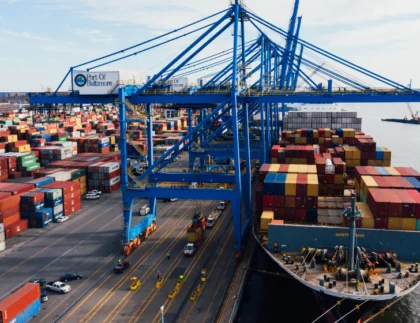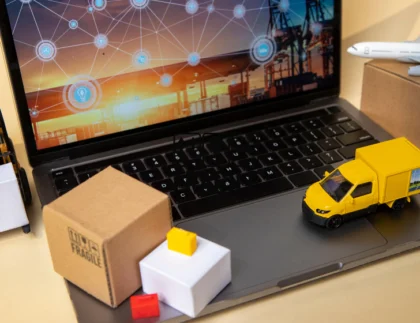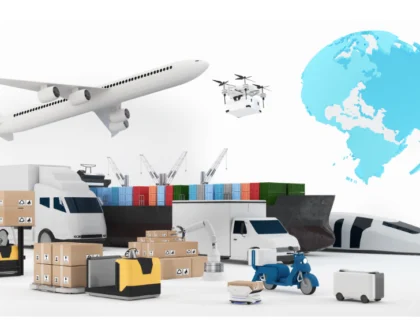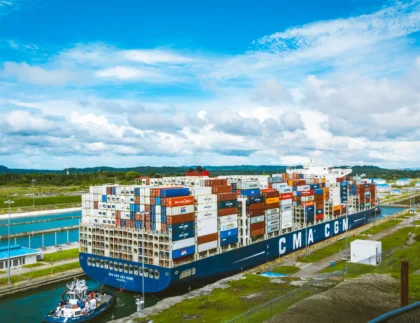
The logistics industry is undergoing a technological renaissance, driven by the growing capabilities of digital freight matching (DFM) platforms.
For decades, freight brokers have acted as intermediaries, connecting shippers with carriers through phone calls, emails, and spreadsheets. But the rise of automation, artificial intelligence (AI), and real-time data is quickly disrupting this long-standing model.
Today, freight brokerage automation and online freight marketplaces are changing the rules of engagement. These platforms are empowering shippers and carriers to connect directly, instantly, and more efficiently than ever before.
As a result, a key question has emerged: Are traditional freight brokers falling behind in this digital race? Let’s unpack the evolution of DFM, how it's disrupting the industry, and whether traditional brokers can keep pace.
What Is Digital Freight Matching?
At its core, digital freight matching uses technology to automatically match available freight with available capacity.
Unlike the old-school model of cold-calling carriers or sifting through emails to find a truck, DFM platforms use real-time data, AI, and machine learning to optimize the process.
The technology draws on vast databases of shipments, truck locations, traffic patterns, and carrier availability to instantly pair freight with the most appropriate carriers.
These platforms can operate 24/7, respond in milliseconds, and often provide visibility features like GPS tracking and digital document management.

How DFM Platforms Are Transforming Logistics
Digital freight matching isn’t just a buzzword—it’s reshaping how logistics operates. Here’s how:
1. Faster, More Accurate Matching
Traditional brokers can take hours (or even longer) to confirm a load. DFM platforms can do it in seconds using truckload matching software that scans for availability and recommends the best matches in real time.
2. Cost Efficiency
By removing layers of human interaction, automation reduces overhead costs. Platforms can often offer lower fees than traditional brokers, which makes them attractive to budget-conscious shippers.
3. Scalability
DFM platforms don’t face the same hiring or training bottlenecks that traditional brokerages do. Algorithms can handle thousands of requests simultaneously without fatigue, making scalability much more feasible.
4. Transparency and Visibility
Digital platforms often provide real-time tracking, estimated times of arrival, and instant proof-of-delivery—all critical features for today’s shippers. This level of transparency is hard to match with manual processes.
The Rise of Logistics Tech Startups
Fueled by venture capital and growing demand for faster, more transparent shipping solutions, logistics tech startups have emerged as serious contenders in the freight space.
Companies like Convoy, Transfix, and Uber Freight have rapidly expanded, offering slick interfaces, intelligent algorithms, and promises of leaner, smarter logistics.
These platforms are not just disrupting freight—they’re reimagining it. Many offer:
- Dynamic pricing models
- AI-driven route optimization
- Integrated carrier vetting
- Real-time capacity matching
Their ability to innovate quickly and respond to market needs makes them highly competitive, especially among younger, tech-savvy businesses.

Traditional Brokers: Stuck in the Middle?
Many traditional freight brokers are facing a crossroads. Their core value proposition—relationship-based matchmaking—is being challenged by platforms that offer speed, visibility, and cost efficiency.
That said, traditional brokers still have strengths, especially when it comes to:
- Complex, multi-modal shipments
- Specialized cargo (e.g., hazmat, temperature-controlled)
- Human judgment in edge cases
- Long-standing carrier relationships
These strengths, however, are not immune to disruption.
As AI in freight forwarding becomes more sophisticated, even nuanced decisions are being handled algorithmically.
Can Traditional Brokers Evolve?
The good news for traditional players is that the shift to digital isn’t a death sentence—it’s an invitation to adapt.
Forward-thinking brokers are investing in freight brokerage automation to enhance their services.
Some are developing their own digital platforms; others are partnering with existing DFM solutions to stay competitive.
In fact, hybrid models—where brokers leverage technology to enhance human expertise—may offer the best of both worlds.
By automating routine tasks (like rate quoting and load matching), brokers can focus on high-touch services, negotiation, and exception management. The key lies in embracing change rather than resisting it.
Real-Time Freight Capacity Matching: A Game Changer
Perhaps the most powerful aspect of DFM is its ability to enable real-time freight capacity matching.
By constantly scanning GPS data, ELDs, and availability feeds, DFM platforms can match freight to idle trucks almost instantly.
This reduces deadhead miles, lowers carbon emissions, and improves asset utilization—goals that align with both economic and environmental objectives.
Traditional brokers, who rely on phone calls and outdated load boards, struggle to compete with this level of efficiency.
The Trust Factor: Human vs. Machine
One area where traditional brokers still hold an edge is trust. Relationships matter in freight.
Shippers often prefer speaking with someone they know when issues arise, and carriers value brokers who understand their preferences and constraints.
DFM platforms are working to close this gap by investing in customer service teams and building more intuitive interfaces.
But trust is built over time—and that’s something technology alone can’t always replicate.
This is why the future may favor collaborative models, where technology handles the logistics, and humans manage the relationships.

Conclusion: A Digital Future with a Human Touch
So, are traditional brokers falling behind? The answer depends on their willingness to evolve.
There’s no denying that digital freight matching platforms are reshaping the freight industry.
Their ability to deliver faster, cheaper, and more transparent solutions is challenging the status quo. Freight broker disruption is real—and it's accelerating.
However, the most successful players will likely be those who blend digital efficiency with human expertise.
The logistics industry doesn’t have to be a zero-sum game between man and machine. Instead, it’s about finding synergy.
In the race toward the future of freight, the winners will be those who harness the best of both worlds: the power of logistics tech startups and the wisdom of seasoned brokers.











